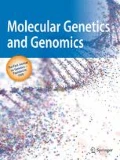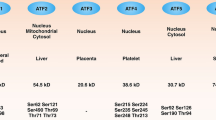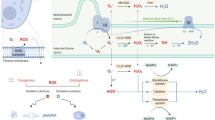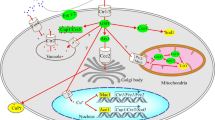Abstract
Many studies show that lifespans of various model organisms can be extended by limiting the quantities of nutrients that are necessary for proliferation. In Schizosaccharomyces pombe, the Ecl1 family genes have been associated with lifespan control and are necessary for cell responses to nutrient depletion, but their functions and mechanisms of action remain uncharacterized. Herein, we show that leucine depletion extends the chronological lifespan (CLS) of leucine-auxotrophic cells. Furthermore, depletion of leucine extended CLS and caused cell miniaturization and cell cycle arrest at the G1 phase, and all of these processes depended on Ecl1 family genes. Although depletion of leucine raises the expression of ecl1+ by about 100-fold in leucine-auxotrophic cells, these conditions did not affect ecl1+ expression in leucine-auxotrophic fil1 mutants that were isolated in deletion set screens using 79 mutants disrupting a transcription factor. Fil1 is a GATA-type zinc finger transcription factor that reportedly binds directly to the upstream regions of ecl1+ and ecl2+. Accordingly, we suggest that Ecl1 family genes are induced in response to environmental stresses, such as oxidative stress and heat stress, or by nutritional depletion of nitrogen or sulfur sources or the amino acid leucine. We also propose that these genes play important roles in the maintenance of cell survival until conditions that favor proliferation are restored.







Similar content being viewed by others
References
Aris JP, Alvers AL, Ferraiuolo RA, Fishwick LK, Hanvivatpong A, Hu D, Kirlew C, Leonard MT, Losin KJ, Marraffini M, Seo AY, Swanberg V, Westcott JL, Wood MS, Leeuwenburgh C, Dunn WA Jr (2013) Autophagy and leucine promote chronological longevity and respiration proficiency during calorie restriction in yeast. Exp Gerontol 48:1107–1119. https://doi.org/10.1016/j.exger.2013.01.006
Chen BR, Runge KW (2009) A new Schizosaccharomyces pombe chronological lifespan assay reveals that caloric restriction promotes efficient cell cycle exit and extends longevity. Exp Gerontol 44:493–502. https://doi.org/10.1016/j.exger.2009.04.004
Dilova I, Easlon E, Lin SJ (2007) Calorie restriction and the nutrient sensing signaling pathways. Cell Mol Life Sci 64:752–767. https://doi.org/10.1007/s00018-007-6381-y
Duncan CDS, Rodríguez-López M, Ruis P, Bähler J, Mata J (2018) General amino acid control in fission yeast is regulated by a nonconserved transcription factor, with functions analogous to Gcn4/Atf4. Proc Natl Acad Sci USA. 115:E1829–E1838. https://doi.org/10.1073/pnas.1713991115
Fontana L, Partridge L, Longo VD (2010) Extending healthy life span—from yeast to humans. Science 328:321–326. https://doi.org/10.1126/science.1172539
Gallinetti J, Harputlugil E, Mitchell JR (2013) Amino acid sensing in dietary-restriction-mediated longevity: roles of signal-transducing kinases GCN2 and TOR. Biochem J 449:1–10. https://doi.org/10.1042/BJ20121098
González A, Hall MN (2017) Nutrient sensing and TOR signaling in yeast and mammals. EMBO J 36:397–408. https://doi.org/10.15252/embj.201696010
Han L, Guy MP, Kon Y, Phizicky EM (2018) Lack of 2′-O-methylation in the tRNA anticodon loop of two phylogenetically distant yeast species activates the general amino acid control pathway. PLoS Genet 14:e1007288. https://doi.org/10.1371/journal.pgen.1007288
Kamada Y (2017) Novel tRNA function in amino acid sensing of yeast Tor complex1. Genes Cells 22:135–147. https://doi.org/10.1111/gtc.12462
Karagiannis J, Saleki R, Young PG (1999) The pub1 E3 ubiquitin ligase negatively regulates leucine uptake in response to NH4 + in fission yeast. Curr Genet 35:593–601
Kumar J, Barhydt T, Awasthi A, Lithgow GJ, Killilea DW, Kapahi P (2016) Zinc levels modulate lifespan through multiple longevity pathway in Caenorhabditis elegans. PLoS One 11:e0153513. https://doi.org/10.1371/journal.pone.0153513
Laxman S, Sutter BM, Wu X, Kumar S, Guo X, Trudgian DC, Mirzaei H, Tu BP (2013) Sulfur amino acids regulate translational capacity and metabolic homeostasis through modulation of tRNA thiolation. Cell 154:416–429. https://doi.org/10.1016/j.cell.2013.06.043
Lees H, Walters H, Cox LS (2016) Animal and human models to understand aging. Maturitas 93:18–27. https://doi.org/10.1016/j.maturitas.2016.06.008
Levine ME, Suarez JA, Brandhorst S, Balasubramanian P, Cheng CW, Madia F, Fontana L, Mirisola MG, Guevara-Aguirre J, Wan J, Passarino G, Kennedy BK, Wei M, Cohen P, Crimmins EM, Longo VD (2014) Low protein intake is associated with a major reduction in IGF-1, cancer, and overall mortality in the 65 and younger but not older population. Cell Metab 19:407–417. https://doi.org/10.1016/j.cmet.2014.02.006
Lin SJ, Austriaco N (2014) Aging and cell death in the other yeasts, Schizosaccharomyces pombe and Candida albicans. FEMS Yeast Res 14:119–135. https://doi.org/10.1111/1567-1364.12113
Maruyama Y, Ito T, Kodama H, Matsuura A (2016) Availability of amino acids extends chronological lifespan by suppressing hyper-acidification of the environment in Saccharomyces cerevisiae. PLoS One 11:e0151894. https://doi.org/10.1371/journal.pone.0151894
Matsuo T, Otsubo Y, Urano J, Tamanoi F, Yamamoto M (2007) Loss of the TOR kinase Tor2 mimics nitrogen starvation and activates the sexual development pathway in fission yeast. Mol Cell Biol 27:3154–3164. https://doi.org/10.1128/MCB.01039-06
Miwa Y, Ohtsuka H, Naito C, Murakami H, Aiba H (2011) Ecl1, a regulator of the chronological lifespan of Schizosaccharomyces pombe, is induced upon nitrogen starvation. Biosci Biotechnol Biochem 75:279–283. https://doi.org/10.1271/bbb.100607
Moreno S, Klar A, Nurse P (1991) Molecular genetic analysis of fission yeast Schizosaccharomyces pombe. Methods Enzymol 194:795–823. https://doi.org/10.1016/0076-6879(91)94059-L
Murai T, Nakase Y, Fukuda K, Chikashige Y, Tsutsumi C, Hiraoka Y, Matsumoto T (2009) Distinctive responses to nitrogen starvation in the dominant active mutants of the fission yeast Rheb GTPase. Genetics 183:517–527. https://doi.org/10.1534/genetics.109.105379
Ohtsuka H, Aiba H (2017) Factors extending the chronological lifespan of yeast: Ecl1 family genes. FEMS Yeast Res. https://doi.org/10.1093/femsyr/fox066
Ohtsuka H, Ogawa S, Kawamura H, Sakai E, Ichinose K, Murakami H, Aiba H (2013) Screening for long-lived genes identifies Oga1, a guanine-quadruplex associated protein that affects the chronological lifespan of the fission yeast Schizosaccharomyces pombe. Mol Genet Genomics 288:285–295. https://doi.org/10.1007/s00438-013-0748-6
Ohtsuka H, Ishida M, Naito C, Murakami H, Aiba H (2015) Sexual development of Schizosaccharomyces pombe is induced by zinc or iron limitation through Ecl1 family genes. Mol Genet Genomics 290:173–185. https://doi.org/10.1007/s00438-014-0911-8
Ohtsuka H, Takinami M, Shimasaki T, Hibi T, Murakami H, Aiba H (2017) Sulfur restriction extends fission yeast chronological lifespan through Ecl1 family genes by downregulation of ribosome. Mol Microbiol 105:84–97. https://doi.org/10.1111/mmi.13686
Otsubo Y, Matsuo T, Nishimura A, Yamamoto M, Yamashita A (2018) tRNA production links nutrient conditions to the onset of sexual differentiation through the TORC1 pathway. EMBO Rep. https://doi.org/10.15252/embr.201744867
Petersen J (2009) TOR signalling regulates mitotic commitment through stress-activated MAPK and Polo kinase in response to nutrient stress. Biochem Soc Trans 37:273–277. https://doi.org/10.1042/BST0370273
Powers RW 3rd, Kaeberlein M, Caldwell SD, Kennedy BK, Fields S (2006) Extension of chronological life span in yeast by decreased TOR pathway signaling. Genes Dev 20:174–184. https://doi.org/10.1101/gad.1381406
Rallis C, Codlin S, Bähler J (2013) TORC1 signaling inhibition by rapamycin and caffeine affect lifespan, global gene expression, and cell proliferation of fission yeast. Aging Cell 12:563–573. https://doi.org/10.1111/acel.12080
Rallis C, López-Maury L, Georgescu T, Pancaldi V, Bähler J (2014) Systematic screen for mutants resistant to TORC1 inhibition in fission yeast reveals genes involved in cellular aging and growth. Biol Open 3:161–171. https://doi.org/10.1242/bio.20147245
Roux AE, Chartrand P, Ferbeyre G, Rokeach LA (2010) Fission yeast and other yeasts as emergent models to unravel cellular aging in eukaryotes. J Gerontol A Biol Sci Med Sci 65(1):1–8. https://doi.org/10.1093/gerona/glp152
Santos J, Leitão-Correia F, Sousa MJ, Leao C (2016) Dietary restriction and nutrient balance in aging. Oxid Med Cell Longev 2016:4010357. https://doi.org/10.1155/2016/4010357
Shang J, Wu L, Yang Y, Li Y, Liu Z, Huang Y (2019) Overexpression of Schizosaccharomyces pombe tRNA 3′-end processing enzyme Trz2 leads to an increased cellular iron level and apoptotic cell death. Fungal Genet Biol 122:11–20. https://doi.org/10.1016/j.fgb.2018.10.003
Shimasaki T, Ohtsuka H, Naito C, Murakami H, Aiba H (2014) Ecl1 is activated by the transcription factor Atf1 in response to H2O2 stress in Schizosaccharomyces pombe. Mol Genet Genomics 289:685–693. https://doi.org/10.1007/s00438-014-0845-1
Shimasaki T, Ohtsuka H, Naito C, Azuma K, Tenno T, Hiroaki H, Murakami H, Aiba H (2017) Ecl1 is a zinc-binding protein involved in the zinc-limitation-dependent extension of chronological life span in fission yeast. Mol Genet Genomics 292:475–481. https://doi.org/10.1007/s00438-016-1285-x
Su SS, Tanaka Y, Samejima I, Tanaka K, Yanagida M (1996) A nitrogen starvation-induced dormant G0 state in fission yeast: the establishment from uncommitted G1 state and its delay for return to proliferation. J Cell Sci 109:1347–1357
Takahashi H, Sun X, Hamamoto M, Yashiroda Y, Yoshida M (2012) The SAGA histone acetyltransferase complex regulates leucine uptake through the Agp3 permease in fission yeast. J Biol Chem 287:38158–38167. https://doi.org/10.1074/jbc.M112.411165
Takuma K, Ohtsuka H, Azuma K, Murakami H, Aiba H (2013) The fission yeast php2 mutant displays a lengthened chronological lifespan. Biosci Biotechnol Biochem 77:1548–1555. https://doi.org/10.1271/bbb.130223
Tarumoto Y, Kanoh J, Ishikawa F (2013) Receptor for activated C-kinase (RACK1) homolog Cpc2 facilitates the general amino acid control response through Gcn2 kinase in fission yeast. J Biol Chem 288:19260–19268. https://doi.org/10.1074/jbc.M112.445270
Weisman R, Roitburg I, Nahari T, Kupiec M (2005) Regulation of leucine uptake by tor1 + in Schizosaccharomyces pombe is sensitive to rapamycin. Genetics 169:539–550. https://doi.org/10.1534/genetics.104.034983
Zaborske JM, Narasimhan J, Jiang L, Wek SA, Dittmar KA, Freimoser F, Pan T, Wek RC (2009) Genome-wide analysis of tRNA charging and activation of the eIF2 kinase Gcn2p. J Biol Chem 284:25254–25267. https://doi.org/10.1074/jbc.M109.000877
Zuin A, Carmona M, Morales-Ivorra I, Gabrielli N, Vivancos AP, Ayté J, Hidalgo E (2010) Lifespan extension by calorie restriction relies on the Sty1 MAP kinase stress pathway. EMBO J 29:981–991. https://doi.org/10.1038/emboj.2009.407
Acknowledgements
The authors thank M. Takinami and K. Kanie for helpful discussion, J. Mata for providing permission to use ChIP-sequence data, and M. Yamamoto for the yeast strains. Some S. pombe strains were provided by the National Bio-Resource Project (NBRP) (YGRC) of the MEXT, Japan. The authors would like to thank Enago (www.enago.jp) for the English language review.
Funding
This work was supported by the Japan Society for the Promotion of Science KAKENHI Grant Numbers JP16K07662 (to HO), and JP17K19227 and JP17H03792 (to HA). This work was also supported by the Institute for Fermentation, Osaka (to HA).
Author information
Authors and Affiliations
Corresponding author
Ethics declarations
Conflict of interest
The authors declare that they have no conflicts of interest with the contents of this article.
Additional information
Publisher's Note
Springer Nature remains neutral with regard to jurisdictional claims in published maps and institutional affiliations.
Electronic supplementary material
Below is the link to the electronic supplementary material.
Rights and permissions
About this article
Cite this article
Ohtsuka, H., Kato, T., Sato, T. et al. Leucine depletion extends the lifespans of leucine-auxotrophic fission yeast by inducing Ecl1 family genes via the transcription factor Fil1. Mol Genet Genomics 294, 1499–1509 (2019). https://doi.org/10.1007/s00438-019-01592-6
Received:
Accepted:
Published:
Issue Date:
DOI: https://doi.org/10.1007/s00438-019-01592-6




